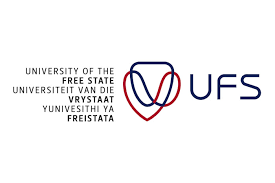University of the Free State all-set to launch Africa Reparations Hub
The University of the Free State (UFS) is set to launch an Africa Reparations Hub, which will serve as a hub for Pan-African-led reparations scholarship, policy, and advocacy. The University of the Free State Africa Reparations Hub (UFSARH) will be housed within the UFS Faculty of Law.
“The UFSARH vision is to be an international academic forum to institutionalise, promote and advance the Africa reparations agenda,” says Khanya Motshabi, UFSARH Strategic Lead. “Its mission anchors the Africa reparations agenda through research, scholarship, and advocacy. The hub is underpinned by the values and principles of excellence, ubuntu, social justice, African-centredness, and Pan-African epistemological grounding of all its initiatives, operations, activities, and undertakings.”
As a Pan-African centre, the hub will work at national, regional, and international levels, and resolves to conduct research, offer education, develop policies, and advocate for reparations via a UFSARH Panel of Experts on Africa Reparations. It will have three key facets: a database on Africans for Africa, which will serve as a repository for resources and an information archive; it will serve as home to the expert group on Africa reparations; and anchor a research group on the subject.
Convened by Dr Catherine Namakula, the hub will be established under the auspices of the Faculty of Law and the Department of Public Law, and would be accountable to an advisory board led by Prof Serges Kamga, Dean of the Faculty of Law, and Prof Shaun De Freitas, Head of the Department of Public Law.
Addressing the wrongs of the past
As a home for a repository of all resources on Africa reparations, the UFSARH aims to support the pursuit of justice for historical injustices such as enslavement, apartheid, colonialism, neo-colonialism, and economic exploitation and extortion. In addition, the UFSARH’s contribution to global equality and social justice aligns with the UFS’s Vision 130 strategic plan.
The UFSARH aims to unify and strengthen the fragmented African reparations narrative by serving as a prominent legal, academic, and transdisciplinary forum.
“The hub would also anchor and reinforce the Africa Reparations Agenda of the African Union. It shall bolster the increased awareness and activism of African government, non-government, civil society, and individual actors through grounding relevant political, diplomatic, normative, and academic activities and initiatives,” says Dr Shelton Makore, UFSARH Technical Lead.

